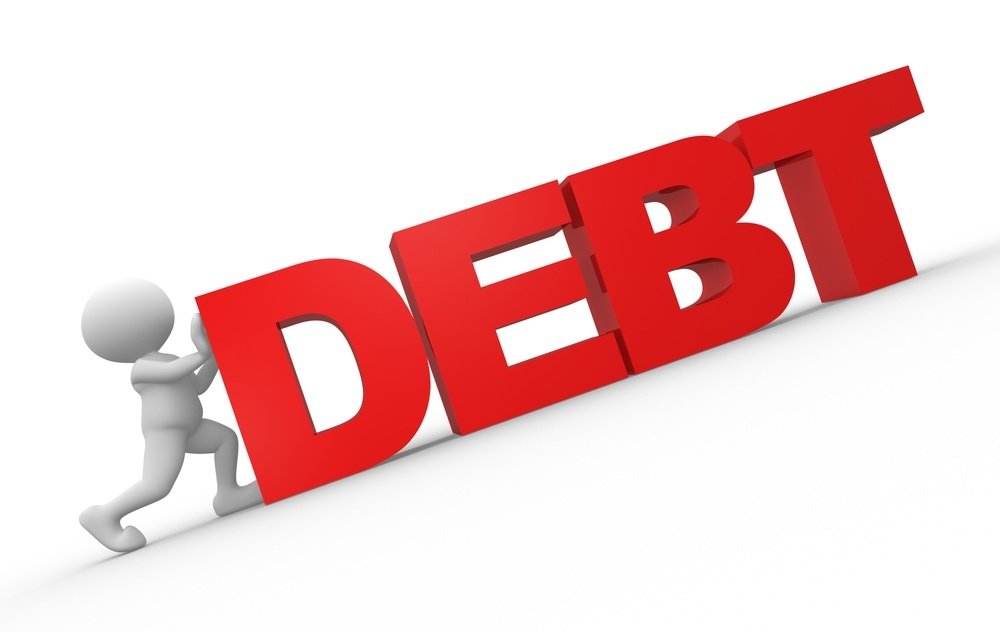
This is the most dangerous four letter term in the world of personal finance. The majority of households in the United Kingdom struggle to manage it. In 2018, the total volume of UK credit card debt reached record levels.
If you’re a resident here, then you probably know what we’re talking about. You’ll be amazed to learn that the UK Finance’s Household Finance Update calculated the entire amount of debt to total a staggering forty-four million and eight hundred thousand pounds at the end of last year, as in, December 2018. In fact, it was estimated that the average UK household owes an average of £15,385 to lending institutions, banks and credit card firms.

Worrisome, isn’t it? Well, if you truly want to climb out of your ravine of debt, then here are ten steps you can take to manage your debt.
1. Don’t avoid your debt
If only ignoring problems would make them go away, the world would probably have achieved global peace by now 🙂 Unfortunately, that is not the case in reality. Don’t throw the mail you receive from banks or credit card firms in to the bin without opening them.
You’re a smart cookie and know what you have to do. Be brave and open those letters. Trust us, it’s much better to face financial issues head on rather than hide or ignore them.
How else will you achieve true freedom?
2. Compile a debt list
Putting together a list of all your debt, whom you owe payments too, how much and by which date of the month will help you get organised and ensure that you will not miss any payments.
You see, the first step is actually to achieve awareness. Such a detailed list will help you to see the bigger picture and to understand the nature of your debt. This way, you will be able to create a smart, effectual repayment strategy that is not only realistic but possible for you to implement.
As you will see the broader picture and comprehend what kind of different debts you are in, you’ll identify that not all debts have the same kind of serious consequences. By prioritising which ones you must pay off initially, you’ll devise your repayment strategy accordingly.
3. Plan your freedom
If you really want to be liberated from the clutches of debt, then you’ll want to work out your economic inflows vs. your outflows.
When you make your calculations, do not forget to include any additional fiscal benefits that you are entitled to, such as child maintenance.
Estimate all your outflows that include your bill payments, food bills, mortgage, credit card, and any recreational spending you tend to undertake.
Our advice is to make a “worst case” scenario. Put in the lowest amount of monthly income you expect to make versus the highest amount of outflows. After doing this, evaluate your numbers in your different categories (such as food, recreational activities, internet bill) and see where you can cut back in order to save up to pay off your debt.
3. Cut back
Speaking of cutting back…
Maintain an expenses diary or a budget list to track your expenditure. This will help you to truly understand where you are spending unnecessarily and how you can improve your spending patterns.
Minor lifestyle changes can make a world of a difference. For instance, cook more at home and take leftovers for lunch to work instead of spending those precious few pounds on a baguette or sandwich.
4. Be punctual with your payments
Chances are that if you do not meet a payment on time, you’ll be charged a late penalty fee. You can avoid these additional expenses by making sure you do not default on any payment. Once they add up, they can form a huge sum!
In the event, you’re unable to meet a payment – contact your lender immediately. Try to take an appointment and meet him in person to explain your reasons. Being honest may give you some leeway with them to re-negotiate your terms or help you gain a chance to lessen the amount of monthly payments you have to make. This is the best national debt advice you will receive!
5. Credit card interest rates
Take out your recent credit card statements and check what interest rate you’re paying. The goal here is to try and diminish the interest sum that’s gradually building up as debt. Did you know that balance transfer credit cards could assist you in this endeavour?
Ultimately, you have two options:
- Transfer your outstanding liability to another card that has a reduced interest rate until you manage to pay off your total debt. The amount of interest you will owe over time will be significantly less and you probably won’t be charged any additional fees.
- Transfer the debt to a credit card that is free from interest rate charges. What you will have to assess is the cost of balance transfer fees versus the chance of you having to change cards again before the preliminary offer expires.
6. Select a debt repayment plan
This is one of the most vital steps towards achieving freedom from debt. You will want to know which debts you can pay off early and which order you can pay them off in. There is a host of different tactics available to you. For instance, it may make sense to you to concentrate on your high interest loans and try to pay them off first. The quicker you pay them off, the lower your interest fees will be.
You can also start from the lower end of the debt spectrum by clearing your smallest debts first. Then, you move on to the one that’s higher than that and so on. This way, you’ll function within manageable fiscal parameters and gain a sense of achievement as you are checking off different debts from your list.
7. Switch to cheaper alternatives
It costs a pretty penny to manage daily household expenses. When you are in the process of reviewing your inflows and outflows, check the market to see if there are cheaper variations of different services that you’re paying for. For instance, is there a more affordable internet service plan you could switch over too? Do you really need that fancy 150+ cable channels package?
8. Allocate savings towards debt
Yes, you may not have any savings at the moment. However, chances are that a few months from now, as you cut back and make minor changes to save money in your daily life, you will have some extra cash put on the side. Pick it up and put it towards paying off any debt you still have. Try to put as much money as you can towards paying off your debts every month, so you are debt-free faster.
9. Don’t borrow more
This step may seems super obvious but you’ll be surprised at the number of people who borrow more debt to pay off existing debt. Don’t become part of this group! You’ll be shooting yourself in the foot twice! Trust us, consolidation loans are NOT the answer.
10. Stick it out
Before you spend even a few pennies, you’ll have to stop and ask yourself if its really needed. Do you really need that branded lip gloss or can it wait a few weeks? Staying on top of things is how you will achieve your dream of being debt free.
You got this!








